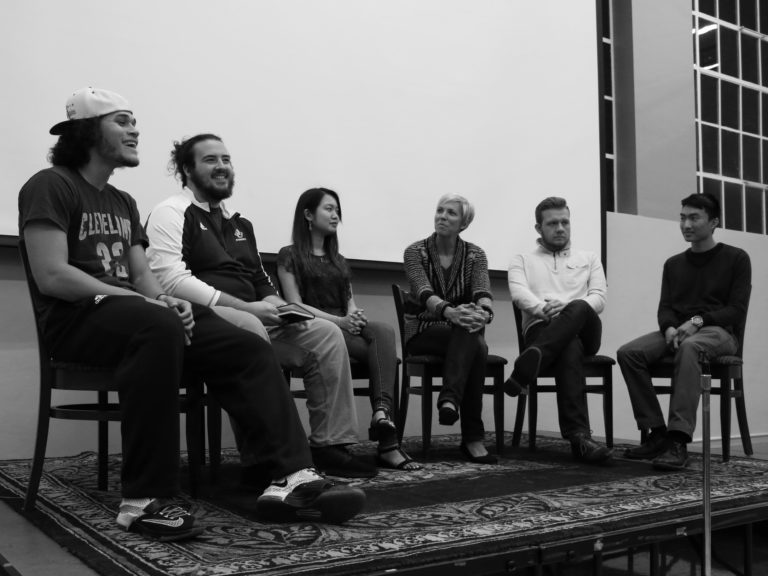By Katie Ellington, Staff Writer
What stereotypes do minority students face? Does reverse racism exist? What is the difference between appreciating another culture and cultural appropriation? These are just a few questions panelists discussed at #AreYouSerious, an event hosted by Intercultural Programs’ Advocacy and Comprehension committee on Oct. 19.
Seniors Isaac Moore and Joshua Becht, juniors Tinson Lam and Ryan Palomo, sophomore Eliza Tan and Intercultural Affairs Coordinator Maria Brown answered questions anonymously submitted by students about different racial, ethnic and cultural identities.
“I think talking about racism is important, especially on a small campus like this where we don’t have a ton of diversity,” said sophomore Mikayla Kneen, who attended the panel.
Standia Civil, a senior and the Vice President of Student Intercultural Programs, said she hoped the program would inspire students to continue the conversation.
“We just wanted to create a way for you guys to feel like you could ask questions,” she told the audience. “These are the segue for you to start these difficult and uncomfortable conversations.”
In addressing whether or not reverse racism exists, Moore explained the difference between personal and systemic racism. While the former deals with individual attitudes, the latter refers to how social institutions like the workforce, prison system or education are biased against certain people groups.
“Personally, every race has to struggle with the fact that (humans) judge on the outward appearance and not the heart,” said Moore. “As far as systemic racism goes, you’d be hard pressed to find a case where white people are left out of society, education, economics or any prestigious field.”
Moderator Stephanie Beltran also asked about the difference between ‘Hispanic’ and ‘Latino,’ media portrayal of racial issues and being asked to speak in a different language.
Palomo, a Costa-Rican American, says that he typically doesn’t mind speaking Spanish for people, but acknowledged that other people may feel uncomfortable when asked to speak another language.
“It puts you on the spot,” he said. “It’s one of those things where the way you ask it helps tremendously. Instead of demanding it, ask and see if they’re willing to do it. If they’re not, respect that.”
A recurring theme during the talk was the need for honest conversations between people of different racial, ethnic and cultural backgrounds.
“It starts with relationship…Having the foundation of a relationship gives you the ability to ask the questions that you want to know,” said Becht. “I will never fully understand what it is to be a minority in this country, but I can strive to empathize with it to the best of my ability.”
“It’s natural to feel fearful of things that are unfamiliar to us. It always requires us to get out of our comfort zone,” said Tan. Both Tan and Lam stated that they had been mistaken for other Asian students on campus. Nevertheless, Tan said she “would rather have someone call me the wrong name than not talk to me all year because I look different.”
“Don’t make assumptions, because assumptions lead to stereotypes,” said Lam. “Conversations are the best way to learn about each other.
Both Becht and Brown encouraged non-minority students to learn more about the issues minorities face and advocate for them.
“As white people in this country, we have the ability to take on the burdens of people who feel that their lives don’t matter and their voices aren’t heard,” said Becht.




